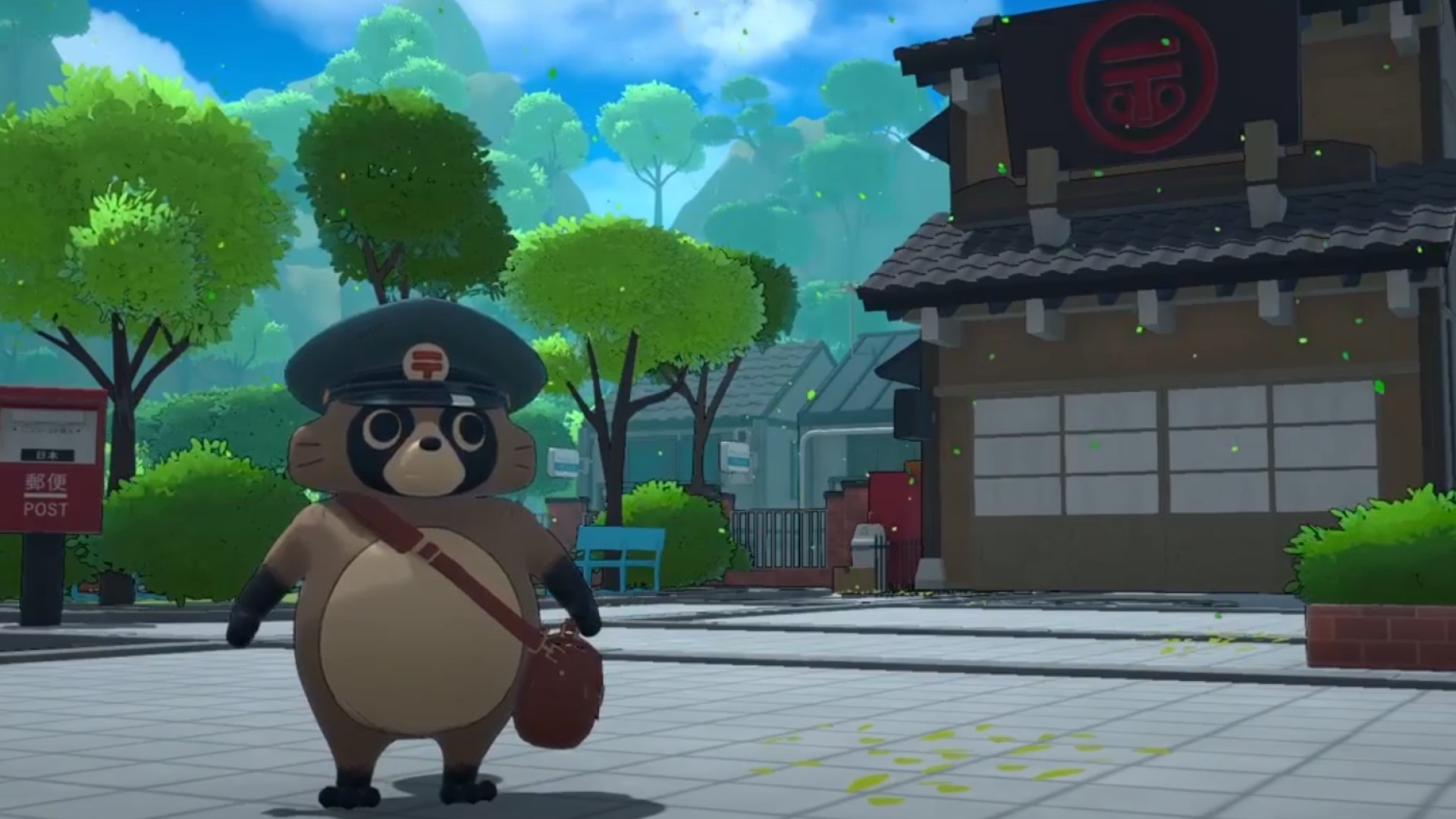
On my screen, three developers are holding up a large porcelain figurine of a tanuki, a kind of raccoon dog native to Japan. The furry creature is wearing a sun hat, and its eyes are wide open like it’s startled to appear on a Zoom call. It also has remarkably large testicles.
“He’s a very cute, non-ballsack version of that,” Liam Edwards says.
The developers are telling me about the main character of the prototype they’re making at their new studio, Denkiworks. You’ll play a tanuki who cycles around the city, delivering packages to residents in the summertime. Originally born from the COVID lockdowns, the game was about what would happen if you couldn’t see people again. In a world where people were trying to interact, they would use trained animals to send packages to one another. Edwards says the idea was “a negative one,” and while some of the core ideas have remained, through iteration, the project has grown into “a love letter to Japan” and particularly the city of Kyoto, where Denkiworks is based.
While the team wouldn’t reveal many details about the game, when I ask if it’s a tanuki version of Death Stranding, Hideo Kojima’s dystopian open-world delivery man simulator, Edwards says, “You're in the ballpark. But it's not the end of the world. And we’ve not yet hired Norman Reedus.”
While Denkiworks is only now announcing itself to the world, co-founders Taku Arioka, Jan de Graaf, and Edwards have been working out of the office space in de Graaf’s apartment for months already, and Edwards was out at GDC in March, showing their prototype off to investors. And before that, the three have been collaborating on projects since working on PixelJunk Scrappers, a side-scrolling beat ‘em up where you play a team of robot garbage collectors trying to clean up the streets of Junktown, sweeping up anyone who gets in your way, back in 2018.
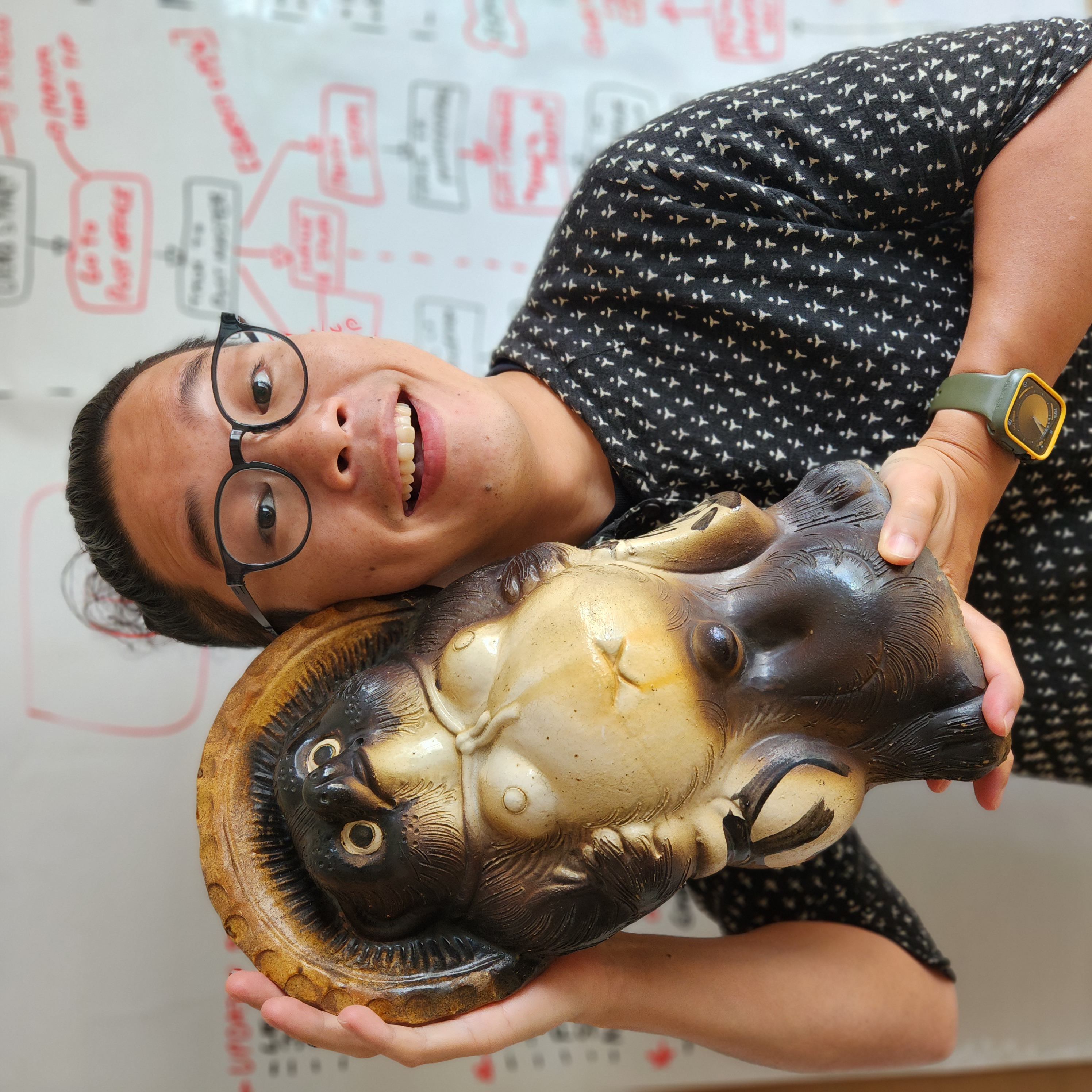
Denkiworks is part of a small club
However, what makes Denkiworks stand out at this point, is that it’s part of a small club: it’s a Kyoto-based indie. In an industry marked by layoffs and short-lived studios, Arioka, de Graaf, and Edwards say the Kyoto video game industry stands apart. In our conversation, the same names come up repeatedly – Q Games, Chuhai Labs, 17-Bit – studios with decades of history.
Q Games created the genre-spanning PixelJunk series, Chuhai Labs made games such as Carve Snowboarding and Cursed to Golf, and 17-Bit is behind Skulls of the Shogun and Song in the Smoke. And, over those indies stands Nintendo, the company which trained many of the developers working in the city. If Denkiworks has a philosophy, it’s drawn from the monolith’s examples.
Getting into the right position
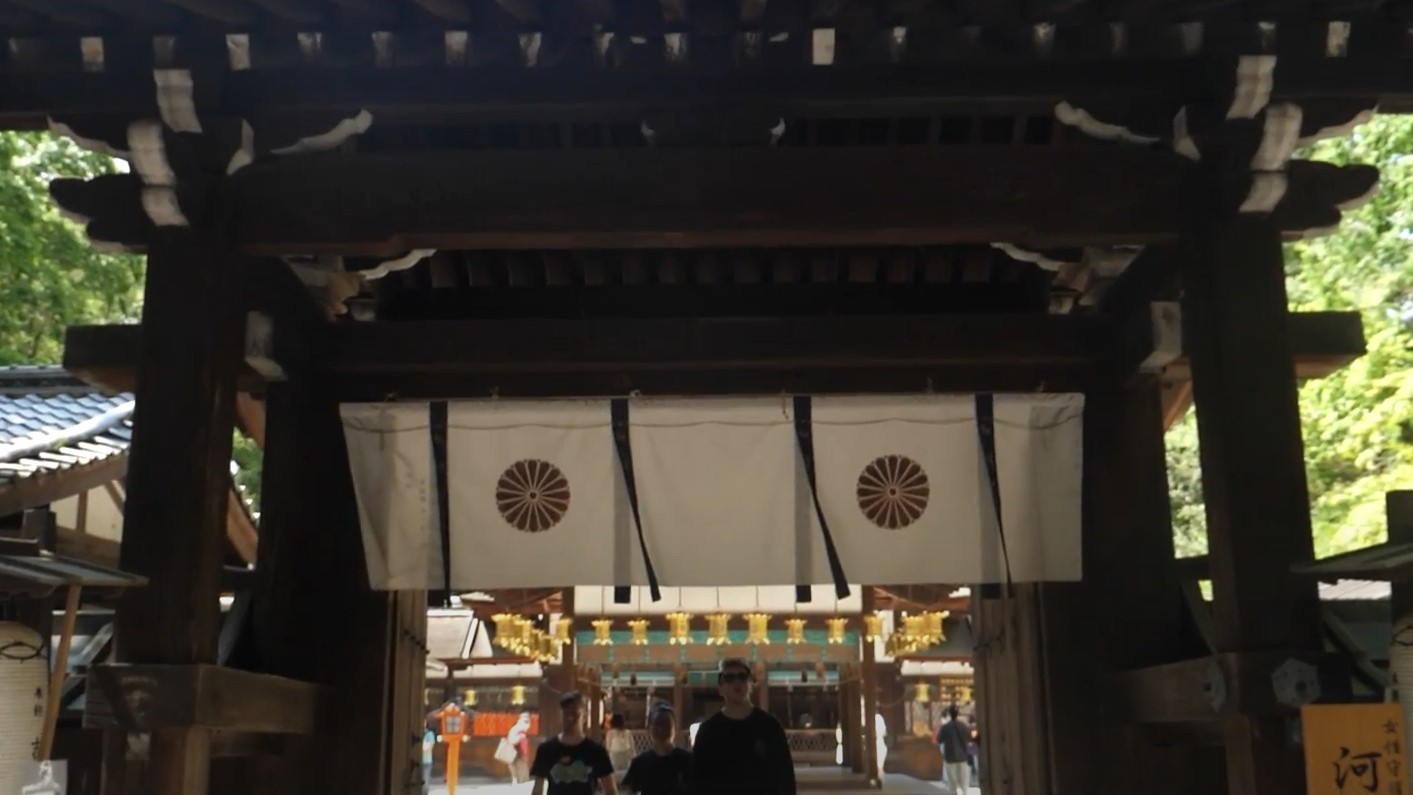
Arioka, de Graaf, and Edwards met in 2018 while working at Q Games, the studio behind the PixelJunk series. At the time, Arioka was directing the development of PixelJunk Scrappers. De Graaf was one of the game’s programmers, and Edwards joined as a co-director to help with design.
It was a demanding production as the team only had a year to turn the prototype into a complete game, ready for release on Apple Arcade. “It was very busy, very tough,” Edwards says. Apple was a big client, and 12 months wasn’t a lot of time to make the game. Then the pandemic hit.
Scrappers launched in April 2020, the same week Q Games switched to remote working. “After an entire year of working together, launching a game remotely sucked,” Edwards says. “But what it did make were strong bonds.” The three were determined to work together on another project.
During 2020, while Q Games adjusted to remote working and the studio began porting Scrappers to other platforms, Edwards was making a game in his own time, one that blended golf and roguelikes. In August of that year, he released a demo for Cursed to Golf on Itch.io, and it caught the attention of Thunderful Publishing, who said it would provide backing to turn it into a complete game. Edwards couldn’t do it alone, and setting up a new studio in a foreign country would be a significant challenge on top of leading a team and turning his demo into a multi-platform release. This is when Mark Lentz, director of business development at Chuhai Labs and a former colleague from Q Games, said if Edwards joined them, they would put a team together to make Cursed to Golf a reality.
This may seem like an unusual offer, but, as Edwards tells it, “The Kyoto gaming industry is very close. And everyone really looks after and cares about each other.” Part of the strength of the community comes from the fact there are a few big studios in the city that have been around for years. Q Games was founded back in 2001, and Chuhai Labs (originally called Vitei Backroom) opened its doors in 2002. Another big player, 17-Bit, is younger but still dates back to 2009. “You have people who persevered,” Edwards says. “They persevered through market trends, the ups and downs, the indie apocalypse. They've carved out their niche here in Kyoto to survive and be different.”
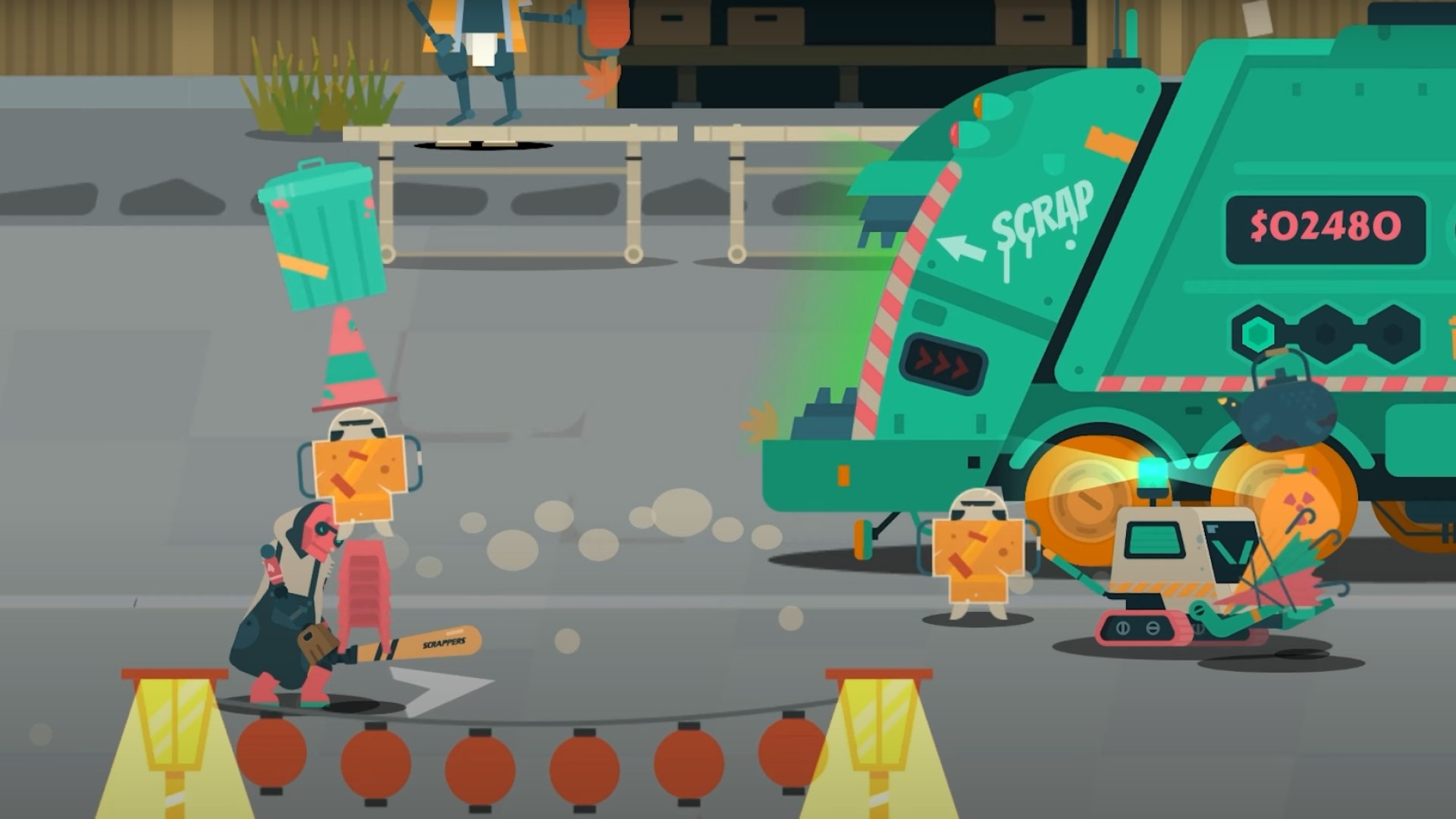
While at Chuhai Labs, directing Cursed to Golf, Edwards continued seeing Arioka and de Graaf regularly. “This idea about making our own games was seeded very early on,” de Graaf says. “It was just a matter of getting into the right position.”
De Graaf was the next to leave Q Games, deciding to go freelance and join the development of Cursed to Golf. But he and Edwards knew that getting Arioka to leave would be more of a challenge. “You've been somewhere for 13 years; it's gonna be tough,” Edwards says.
In the end, the tipping point was seeing de Graaf go. “When I continued at Q Games, but these two guys had already left,” Arioka says, “I so missed that development time [on Scrappers]. I said, ‘Okay. It's time.’”
Joining a very small club
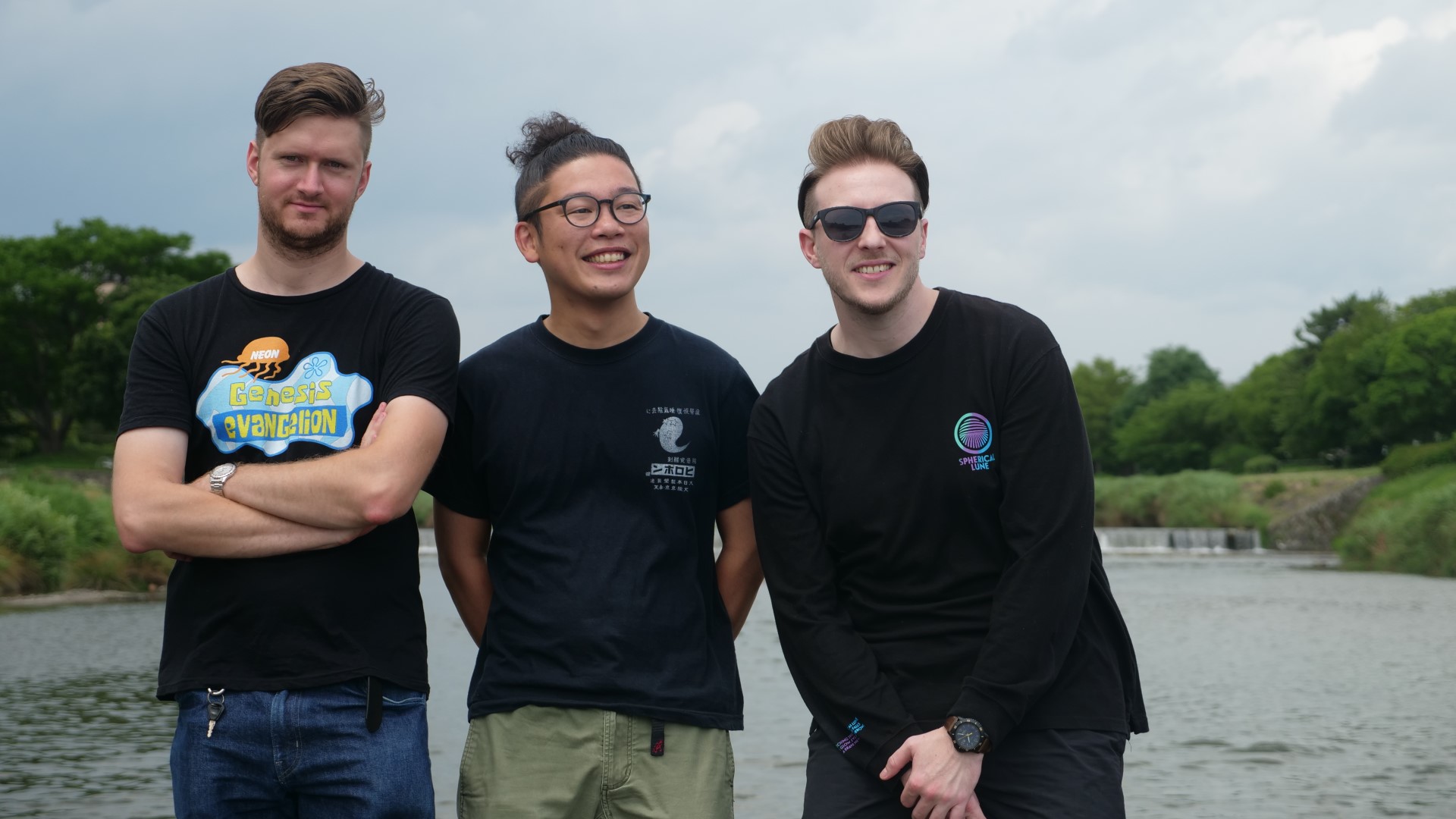
The three didn’t want to leave one developer simply to join another studio; they would start their own. And this is unusual for Kyoto.
Opening a new studio is “a rare thing,” Edwards says. Arioka agrees, saying in the 13 years he worked at Q Games, he saw “three or four” new studios open. This is partly because there’s “a general sense of risk aversion,” de Graaf says. And also, “[There was] a culture of when you leave university and join a company, that's the company you were going to work at forever,” Edwards says. “That was the salary man way here in Japan.”
With the proliferation of indie studios in Western countries, Edwards thinks “we will see more over time,” but, for the moment, founding Denkiworks is an outlier – “We are a new member to a very small club.”
At Q Games and Chuhai Labs, the three had the opportunity to lead projects and turn their prototypes and concepts into fully-fledged games. Arioka and de Graaf made the PixelJunk Scrappers prototype, and Arioka and Edwards then co-directed its full production; Edwards led the team that turned the Cursed to Golf demo into a game. But, even with those opportunities to make games within someone else’s company, the three wanted to strike out on their own.
At Q Games and Chuhai Labs, the three had the opportunity to lead projects and turn their prototypes and concepts into fully-fledged games
“If you work as a director at someone's company, you're still not making your game?” de Graaf explains. “You’re making a game for that company; it must fit in their portfolio.”
“You'll never be truly free unless you are by yourself,” Edwards says. “There's always some sort of system, even in a good place. It's by going your own way; you get to make things the way you want to make them.”
That’s not to say Denkiworks will reject the processes the three learned at Q Games and Chuhai Labs; there is a philosophy they want to carry on, something they say is particular to Kyoto developers.
When to flip a table
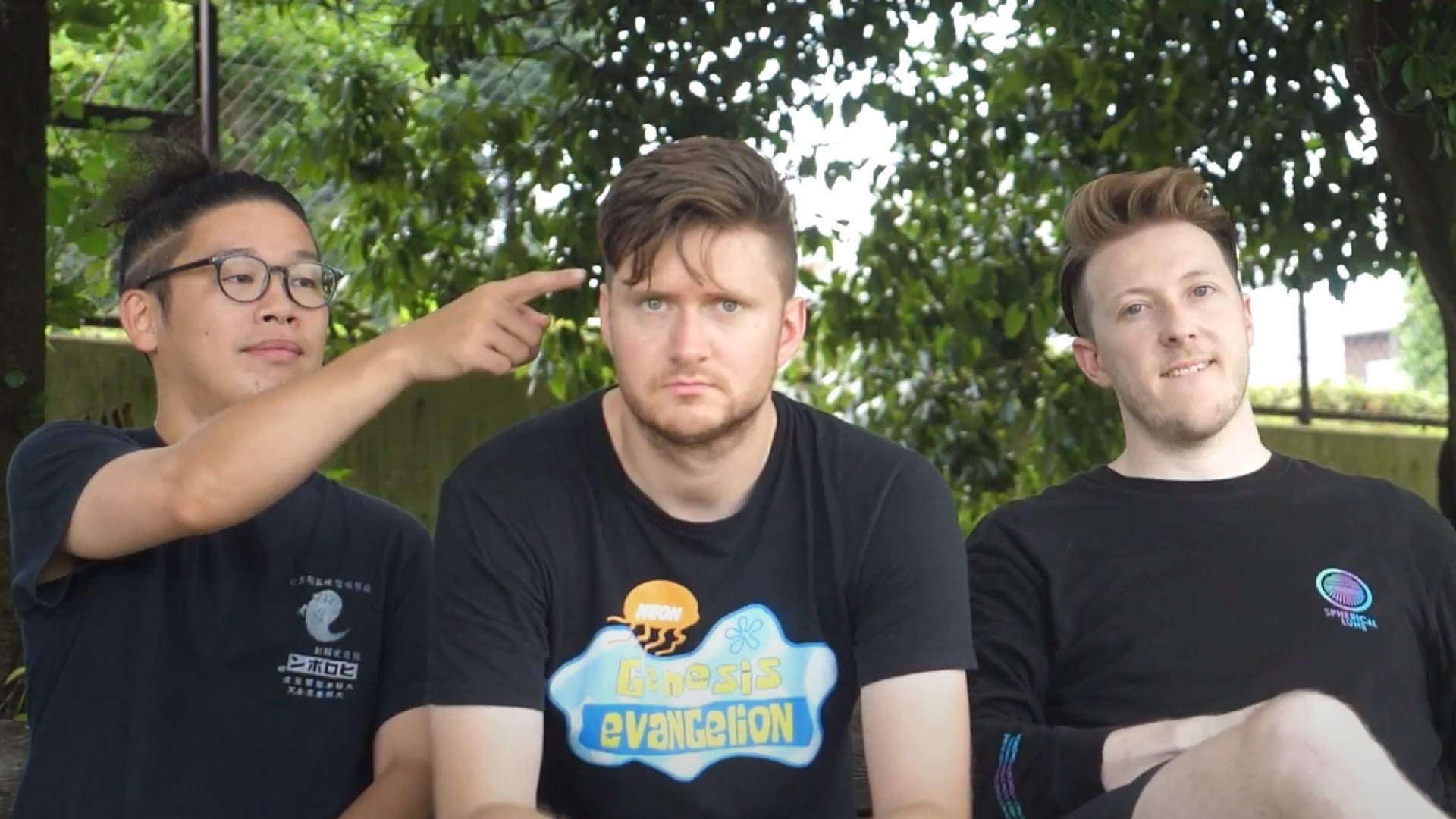
Both Q Games and Chuhai Labs were founded by ex-Nintendo staff – Dylan Cuthbert and Giles Goddard, respectively. They were two of the first foreigners to ever work at Nintendo and were both part of the development team that made Starfox under Shigeru Miyamoto.
While they “took different lessons [from Nintendo],” Edwards says, there is a commonality across the two studios that he respects. “There's a motto of ‘don't settle’.
“Making games is hard. Sometimes you can get to a point where you say, 'We have to do it this way because we’ve run out of time; therefore, it has to be the way it is.' Whereas the Japanese way is, 'Well, this is not good enough; therefore, we have to find another solution.’
“Dylan used to talk about Miyamoto upending the table. He would disappear and then come in, look at [what the team had made], and say, 'Okay, you need to start again.'”
Kyoto is a very traditional place and, for lack of a better word, kind of snobby
Liam Edwards
Edwards admits this isn’t the most productive way of making games sometimes, but it is a sensibility intrinsic to Kyoto. “Kyoto is a very traditional place and, for lack of a better word, kind of snobby,” he says. “It knows it is classy and has a perfectionist culture, and in Nintendo, we can see from years and years of high-quality games, it's all about perfectionism and iterating to achieve that.”
Another style Edwards mentions is ‘Merihari’, which translates to “low pitch, high pitch” and can also mean “liveliness”. So, in video games, it can mean “giving the player lots of things to do followed by quiet moments,” Edwards says. “That relaxing moment to then ramping it up again, it’s very Nintendo, and no matter where you go, Chuhai Labs, Q Games, or now Denkiworks, those lessons hold true, everyone culturally understands.”
Where Denkiworks will have to differ from a platform holder like Nintendo, the team acknowledges, is that they don’t have the same depth of pockets. “We understand the realities of making games is you've got to ship it on time, you gotta get it out, you’ve got to just do it,” Edwards says. “You have to make concessions. If you go into making a game and thinking you'll make 100% of that [original idea], you're crazy; you will make 60% if you're lucky. And the more you accept that reality, the easier it is to pick and choose your battles.” When you can upend a table, and when you can settle.
Finding a new way
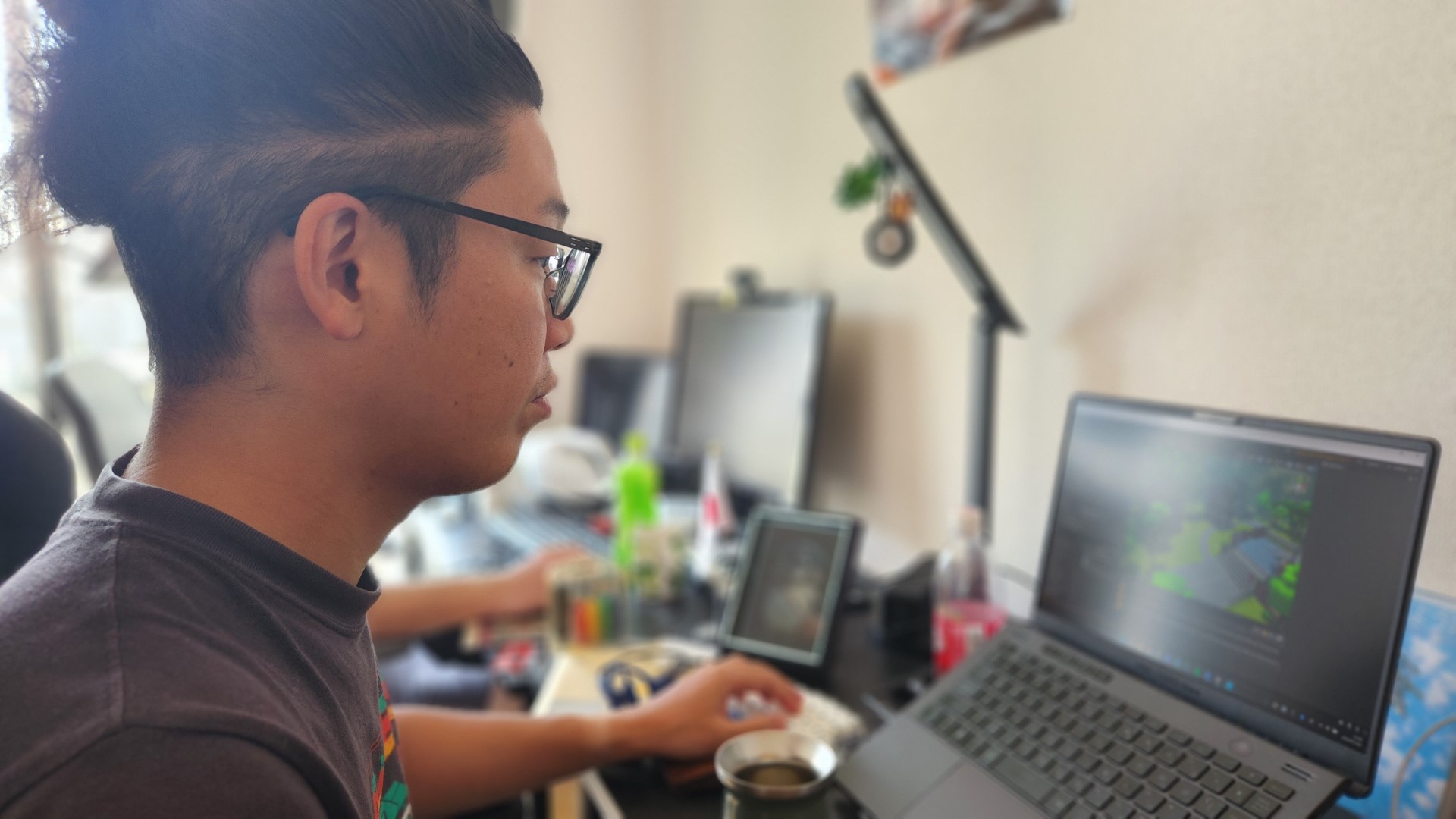
But, the three aren’t starting a new studio simply to do what the other Kyoto teams have done again. Like their prototypes and the design style of the Kyoto game scene, Denkiworks is an iteration. The team wants to take what made the city’s developers persevere and make it more sustainable for the people working for the company.
“Part of starting your own studio is to be your own bosses,” Edwards says when I ask about crunch. “[To say] ‘I didn't like how this worked before. I don't want to feel that way again.’” Before moving to Japan, Edwards worked in the QA department at Rockstar, testing open world crime ‘em up Grand Theft Auto 5 and the sweeping cowboy epic, Red Dead Redemption 2. “I would work 12 hours a day, six days a week for like four years,” he says. “It sucked, and it's important to me to try and never do those things.”
“Games can be an emotional experience,” Edwards says. “It's not just a job; it's a part of your person. But sometimes you need to treat it like a job. Jan [de Graaf] is good about this. He has a good attitude to be like, 'It’s 6 pm, I've had enough today, I'm stopping.'”
For de Graaf, it’s his own experience of burnout that, in part, drove him to found Denkiworks. He realized that he would see symptoms from working on a project for an employer “where you don't have the liberty to choose what you want to work on,” but be able to stay up until 3 am working on his hobby projects after work. Rather than continue programming at work and then in his own time, he decided to “flip the switch and make [his] hobby, [his] work and just work on those projects instead.”
For the moment, the current setup is to recognize when they should start and end work each day and keep a check on each other.
But, for the moment, the current setup is to recognize when they should start and end work each day and keep a check on each other. They say this will need to change as the team expands beyond the founders, but Edwards says, “It will take time to find a way to put something in place where people will trust the system to feel they can comfortably say ‘Hey, I'm having these issues. I need to talk to you about them.“
Denki Days – a day taken each week to make something other than the studio's current game – is one way the team wants to avoid overwork and ensure passion projects sit within work hours. “It's all about learning, prototyping,” Edwards says. Denkiworks’ current prototype is the team’s first 3D game – the Pixeljunk games and Cursed to Golf are all 2D – so, for instance, Arioka and Edwards have been using their Denki Days to work on their art skills.
The Denki Days also feed into another aspect of making a sustainable studio – having the next game ready. “Somebody very smart once told me to always be thinking about Game Number Two,” Edwards says. “And even in this process now, pitching our first project, we've also been prototyping another project.”
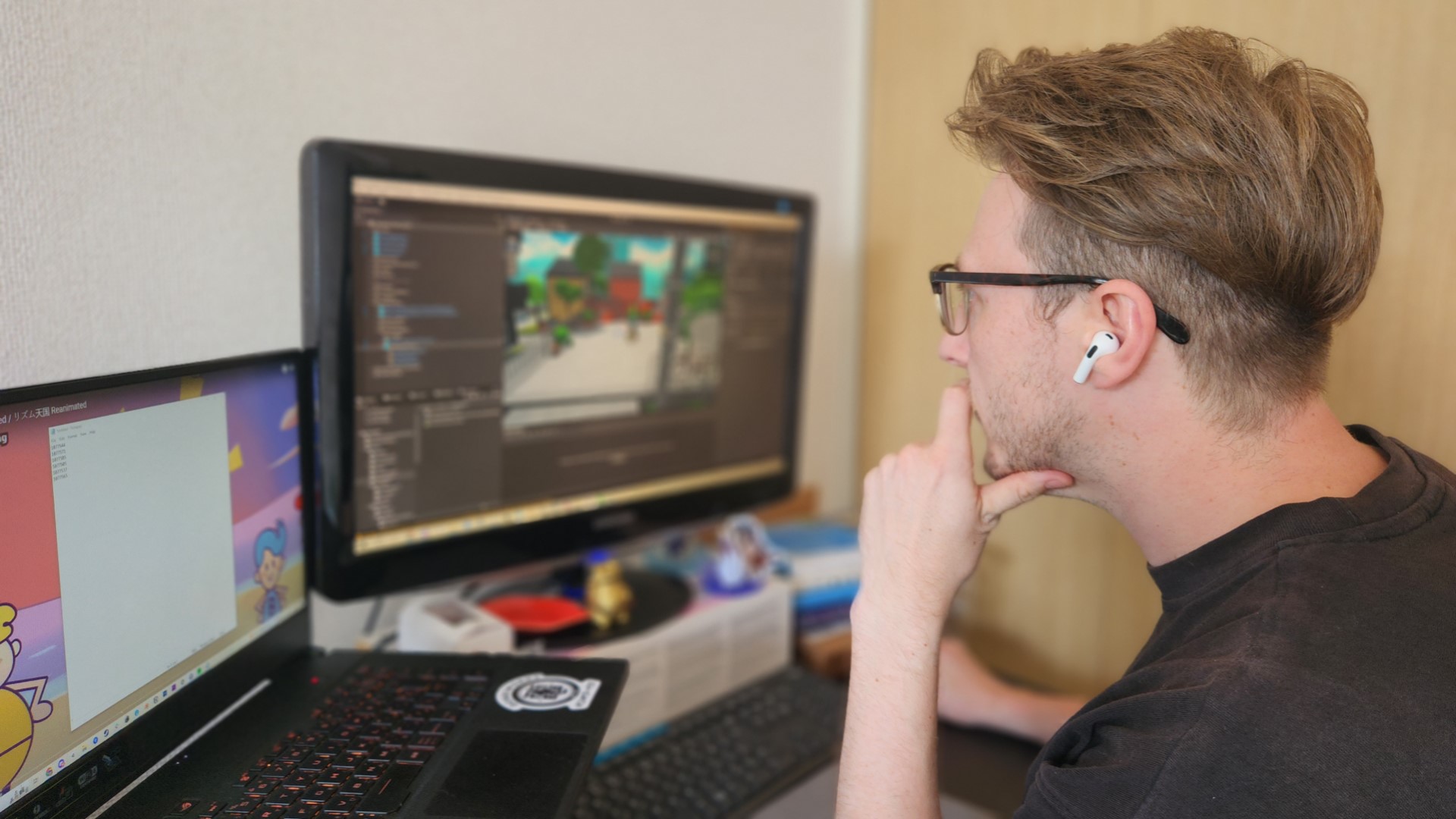
A new studio never forms in isolation; its members bring with it processes, tastes, and ideas formed at the places they worked before – both ones they want to keep and reject; nor does it cut off communication with the network of supportive mentors and former colleagues that helped get them there; nor is it separate from the geography of the city it calls home. All of this is clear in Denkiworks.
Whether it’s lessons passed on to them from Q Games’ founder Dylan Cuthbert, who learned it from Nintendo’s Shigeru Miyamoto; or speaking with Chuhai Labs’ founder Giles Goddard at one of the studio’s weekly meetups; or asking advice from 17-Bit’s Jake Kazdai when they run into him at Bit Summit, Kyoto’s indie game festival, the Denkiworks team was formed by the city’s indie scene as much as it now hopes to develop it.
It’s telling that the studio’s first prototype is the result of months of iteration, where what’s survived of the original concept is the (neutered) tanuki that’s become the team’s mascot. The team’s first game has evolved from an idea born of the isolation of the pandemic into a love letter to Kyoto, the city the team calls home.
Denkiworks is the child of what came before it and what it now lives among.
Here at TRG, we're very excited to see where Denkiworks' projects take us. To keep you satisfied while we wait, why not check out our list of the best upcoming games and best indie games?







